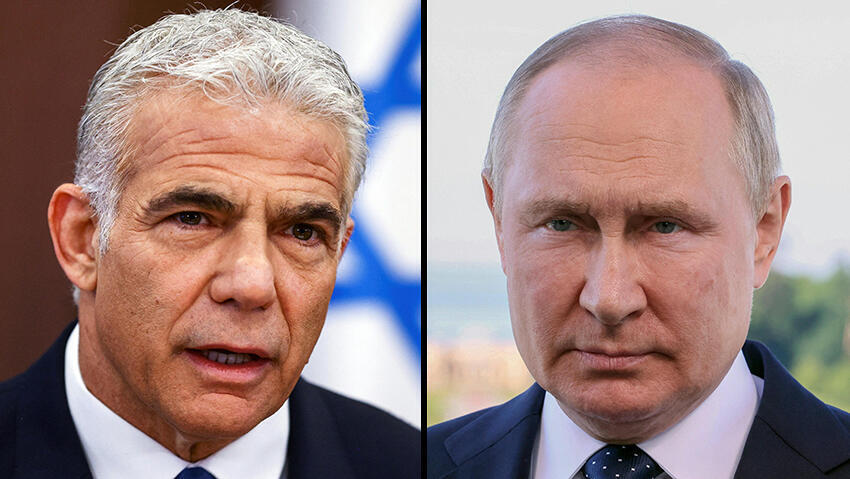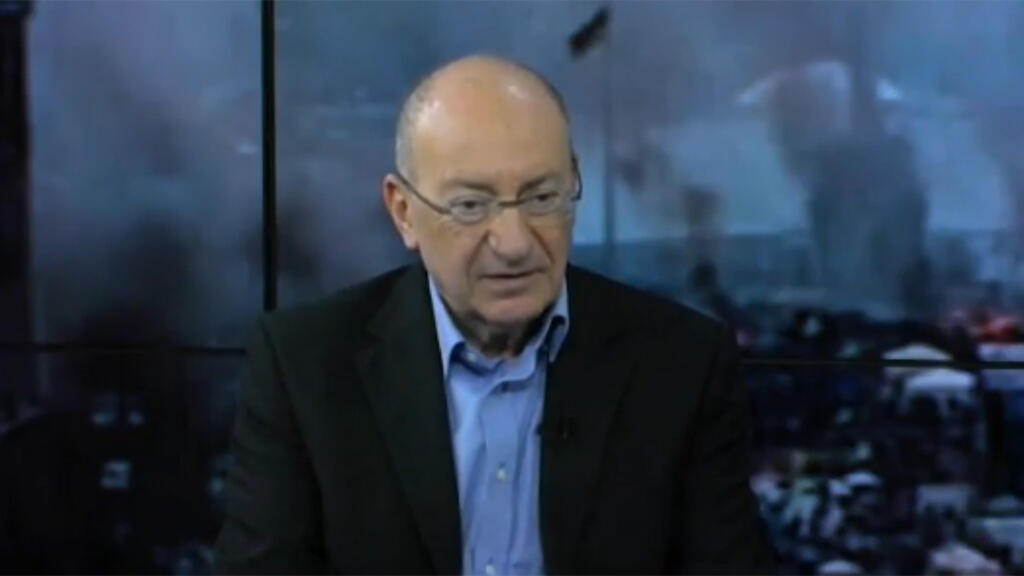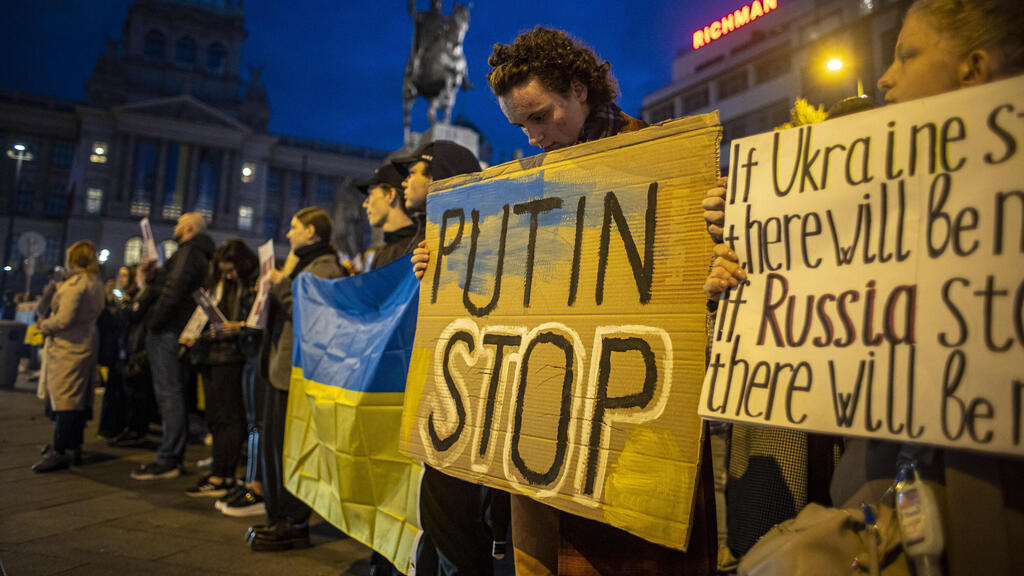Prime Minister Yair Lapid’s strong condemnation of Russia following a barrage of airstrikes across Ukraine – a first for an Israeli prime minister since the war began – could mark a turning point for Russia-Israel ties, although analysts are divided on the issue.
Russian forces on Monday fired dozens of missiles on cities across Ukraine and used Iranian drones to damage power facilities throughout the country. At least 19 people were killed and scores more injured, according to Ukrainian officials.
Russian President Vladimir Putin said that the barrage was in retaliation for Saturday’s explosion on a key bridge connecting Russia to Crimea, an attack that Russia blamed on a Ukrainian truck bomb which caused serious damage.
On Monday night, Lapid condemned Russia’s attacks on civilian targets, marking the first such statement from an Israeli prime minister since Russia’s invasion of Ukraine in late February.
“I strongly condemn the Russian attacks on the civilian population in Kyiv and other cities across Ukraine,” Lapid tweeted. “I send our sincere condolences to the families of the victims and the Ukrainian people.”
Russia was quick to issue a rebuttal and accused Jerusalem of remaining silent in the face of “eight years of continuous Ukrainian terrorist attacks on the citizens of Donbas,” as well as “turn(ing) a blind eye to the recent murderous Ukrainian attack on a refugee convoy in the Kharkiv region” and the destruction of the Crimean bridge.
Israel has tried to remain mostly neutral on the Russian invasion of Ukraine, due in part to its need for the consent of Russia – which patrols Syrian airspace – to carry out airstrikes against Iranian terror proxies in Syria.
Nevertheless, Jerusalem has issued criticisms of Moscow on several occasions and also publicly rejected Putin’s recent annexation of occupied Ukrainian territories.
Lapid’s strong criticism of the barrage, however, could harm ties between the two nations, according to analysts.
“Lapid made a relatively cautious move in the hopes that it wouldn’t affect ties even though he made less than complimentary comments and received a less then complimentary response,” Zvi Magen, a research fellow at Tel Aviv University’s Institute for National Security Studies, said.
“We must remember that Israel is not providing Ukraine with weapons and has not joined sanctions against Russia,” added Magen, who was Israel’s ambassador to Ukraine from 1993 to 1997, and ambassador to Russia from 1998 to 1999.
Overall, the former diplomat is optimistic that Russia-Israel ties will not be impacted, but he admits that the question is still up in the air.
“Lapid spoke out without changing the status quo and this won’t change that for now,” Magen said. “There are some in Israel who believe that the country needs to go further [in its criticism of Russia] and to stop fearing its response but I think there’s a good reason for the Israeli government not to do so.”
Others expressed concern over the public criticism and accused Lapid of being “careless.”
Prof. Efraim Inbar, president of the Jerusalem Institute for Strategy and Security, said that, unlike his predecessor Naftali Bennett, Lapid has long been openly critical of Putin and the Russian invasion of Ukraine.
Lapid “wants to side with the Europeans and particularly Western European countries,” Inbar said. “It could definitely affect our relations.”
The Kremlin, he noted, is under a tremendous amount of pressure amid recent military losses in eastern Ukraine. In addition, and perhaps more significantly, Moscow also is experiencing a rapprochement with Iran, which has provided it with hundreds of combat drones in recent weeks.
“In my view, it’s careless,” Inbar argued. “We should continue our policy of opacity in this conflict because Israel has an interest in the north and Russia is our neighbor. We don’t want to have an angry neighbor.”





